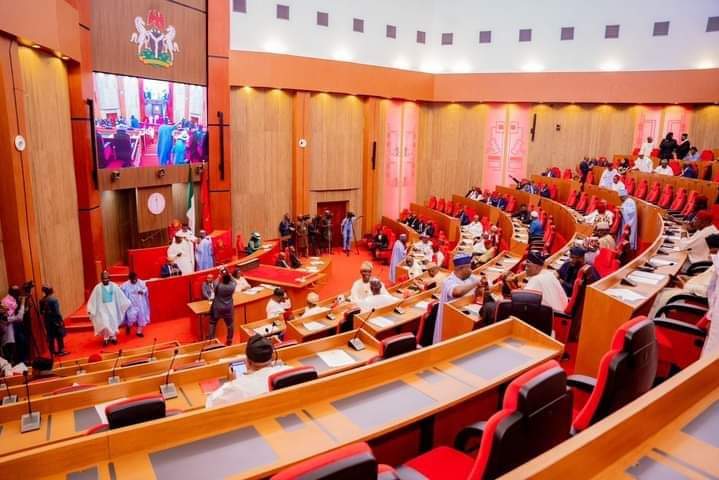From Kenneth Udeh, Abuja
In a decisive push towards digital transformation, the Nigerian Senate on Tuesday passed the National Digital Economy and E-Governance Bill, 2025, sponsored by Senator Shuaib Afolabi Salisu (Ogun Central), through its second reading setting the stage for the country’s most comprehensive legal framework yet for artificial intelligence (AI), secure electronic transactions, and public sector digitisation.
Leading the debate on the floor of the Red Chamber, Senator Salisu described the Bill as “a strategic pillar for 21st-century governance, economic diversification, and national competitiveness,” emphasising that it will institutionalise responsible AI deployment, digital skills development, and modernised e-government service delivery.
“Mr. President, Distinguished Senators, this Bill holds immense promise for our nation and the future of our workforce. It provides legal clarity for electronic transactions, secure systems, and the ethical governance of emerging technologies such as AI,” Senator Salisu said.
According to Salisu, the legislation seeks to close longstanding gaps in Nigeria’s digital policy environment, addressing legal ambiguities around electronic transactions, fragmented public service delivery, and the absence of robust regulation for rapidly evolving technologies like AI.
He listed Key highlights of the Bill;
Establishing legal recognition for digital contracts, records, and signatures;
Mandating ethical, risk-based frameworks for AI systems;
Promoting digital literacy and skills development at all levels;
Mandating government institutions to digitise services and adopt secure, interoperable systems.
Saliisu urged his colleagues to support the second reading of the Bill;
“If enacted, the Bill could push the digital economy’s share of Nigeria’s GDP from its current 16–18% to as high as 22% by 2030. It is also projected to save the government up to ₦300 billion annually by cutting paperwork and inefficiencies while creating over 1.5 million direct and indirect digital jobs through workforce reskilling, local innovation hubs, and support for startups.
Lending his voice to the debate, Deputy Senate President, Senator Barau Jibrin, described the Bill as vital for Nigeria’s economic survival:
“The Bill is directly talking about our economic health. Every sound economy in the world is anchored on pragmatic digital service delivery and governance. It is geared towards the improvement of our economy and nation in general.”
Also speaking in support, Senate Chief Whip, Senator Mohammed Tahir Monguno (APC, Borno North), highlighted the Bill’s significance in the context of AI’s growing global prominence:
“This Bill is determined, especially considering the fact that the world is going towards the digital age and AI is becoming prominent. It gives legality to AI and the digital economy.”
After the debate, the Lawmakers passed the bill for second reading via votes presided over by the Deputy Senate President, Barau Jibrin and was referred to the Senate Committee on ICT and Cybersecurity.
With the Bill now progressing to the Committee stage, lawmakers and stakeholders are optimistic that its eventual enactment will position Nigeria as a competitive player in the global digital economy, leveraging AI and e-governance to drive transparency, innovation, and inclusive growth.


